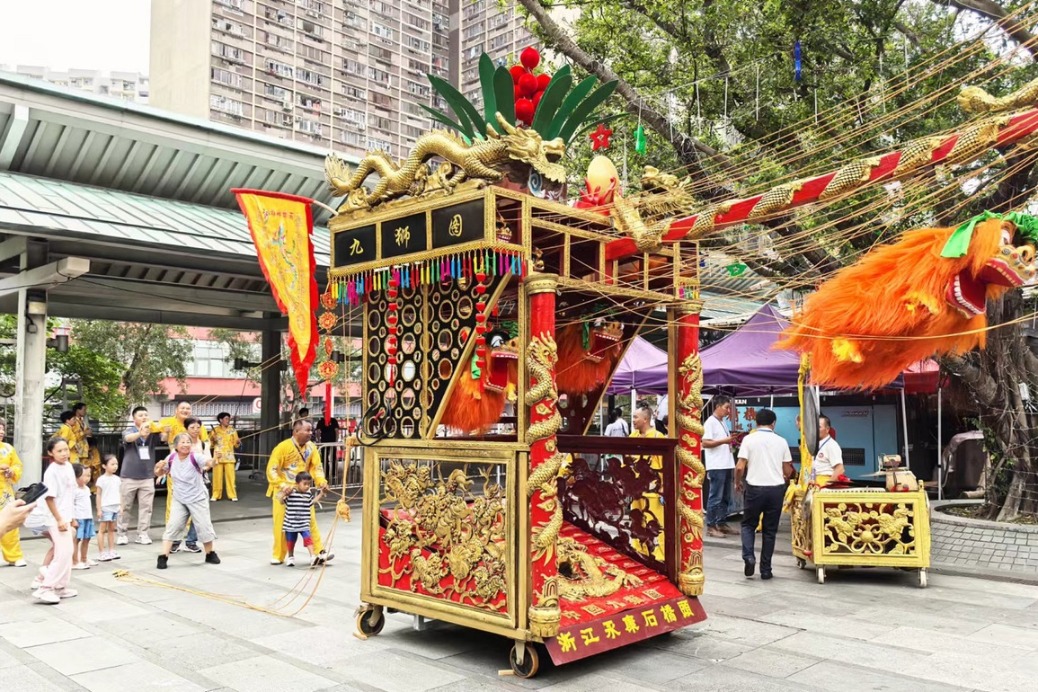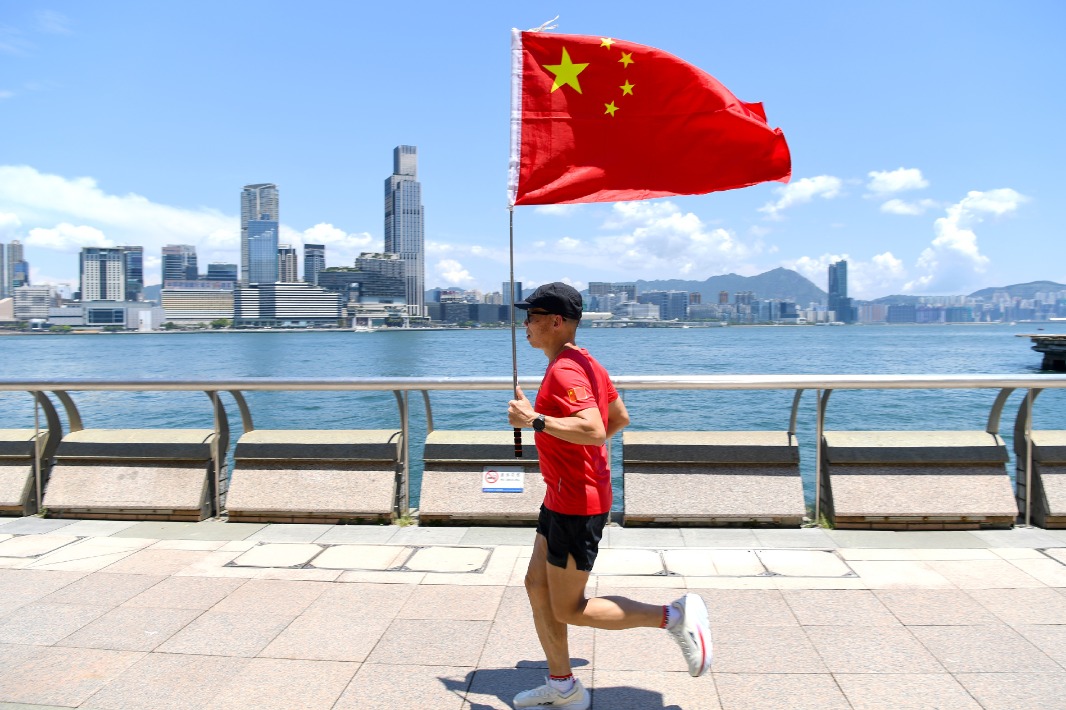Shanghai advances whole-process people's democracy

Shanghai has been advocating a "three-meeting" system to reach decisions in residential neighborhoods, which serves as a grassroots example of whole-process people's democracy.
Whole-process people's democracy refers to China's model of democracy, which ensures that all major legislative decisions are formulated democratically and generated through scientific and democratic decision-making. President Xi Jinping first put the concept forward during a visit to the Hongqiao subdistrict in Shanghai's Changning district in 2019.
Since then, creative approaches to putting the concept into practice have been applied to guide the public to participate in social governance and refine urban management.
The "three-meeting" system first took shape in a residential neighborhood in Shanghai's Huangpu district. The meetings, focused on hearings, coordination and deliberation, gather neighborhood residents for discussions on issues related to community construction. The practice, promoted citywide, allows subdistrict authorities to make local decisions.
One of the results of the widespread and far-reaching practice of the "three-meeting" system is that lifts have been added to many old residential buildings in the city in recent years. Last year, Shanghai set a goal of adding 1,000 lifts to old buildings. It ended up completing 1,579, three times as many as in the previous decade, and plans to add 2,000 more this year.
Zhang Chengjun, a worker from the residential committee office of the Chunjiang neighborhood in Huangpu district, said the "three-meeting" system has helped the face-lift of the four-decade-old neighborhood in many ways.
"Also, the system assists us to solicit ideas, allows residents to express their different viewpoints, and promotes the solution of issues in property management, microscale landscaping upgrades and service for the elderly," he said.
At one of the first four related work stations established in China, grassroots officials and residents have gathered regularly in Hongqiao subdistrict since 2015 to share advice concerning the community and the city.
Shanghai now has 25 such institutions, covering all its 16 districts, and their functions are expanding.
Zhu Guoping, a deputy to the National People's Congress, heads a work station in a Hongqiao subdistrict neighborhood responsible for communication between the public and government authorities.
A neighborhood committee worker for three decades, she said the work stations have expanded the scope of opinion collection to the whole city over the past two years through offline and online meetings, with improvement seen in the quantity and quality in legislative opinions and suggestions.
By early this month, the Hongqiao subdistrict station had completed consultations involving more than 10,000 people on about 67 draft laws. More than 1,300 suggestions were put forward, with 101 adopted.
Zhu collected the suggestions and took them to meetings at the Hongqiao subdistrict station. She said many residents were concerned about social policies regarding care for the elderly and children.
"At the just-concluded annual session of the NPC held in Beijing, I also submitted suggestions to improve professional nursing care for the elderly, especially those in their twilight years," she said.
Chai Shanshan, an NPC deputy for five years, is a postal worker at a transfer center near Shanghai Railway Station. He said he has never forgotten that he represents the millions of migrant workers in cities and collects their ideas on legislation regarding their interests.
"Only those with limited finances will choose to take slow trains at this old station," the 36-year-old said. "I often go to listen to their stories and difficulties."
In 2020, he participated in the mediation of a dispute over a collision between a courier and a passerby. The courier burst into tears due to his inability to offer compensation.
Chai has brought such voices to the NPC. In July last year, eight ministries and commissions, including the Ministry of Human Resources and Social Security, jointly issued a guideline on safeguarding the rights and interests of workers in new forms of employment.
To expand modes of communication with the public, Shanghai's municipal government has also set up an office dedicated to collecting public suggestions. The office collected more than 70,000 public suggestions last year, 98.5 percent of which have been accepted by government departments. Officials from the office said that a large number of valuable ideas from the public have been transformed into "golden keys" to solve problems in urban construction and social governance.
- Documentary explores creation of China's national anthem
- Top court urges tourists to respect, stay safe at scenic areas
- SUFE unveils plan to enhance postgraduate education in finance and economics
- From little seedlings large profits grow
- Timeline of environmental protection efforts
- 313 telecom fraud suspects handed over to China from Myanmar





































